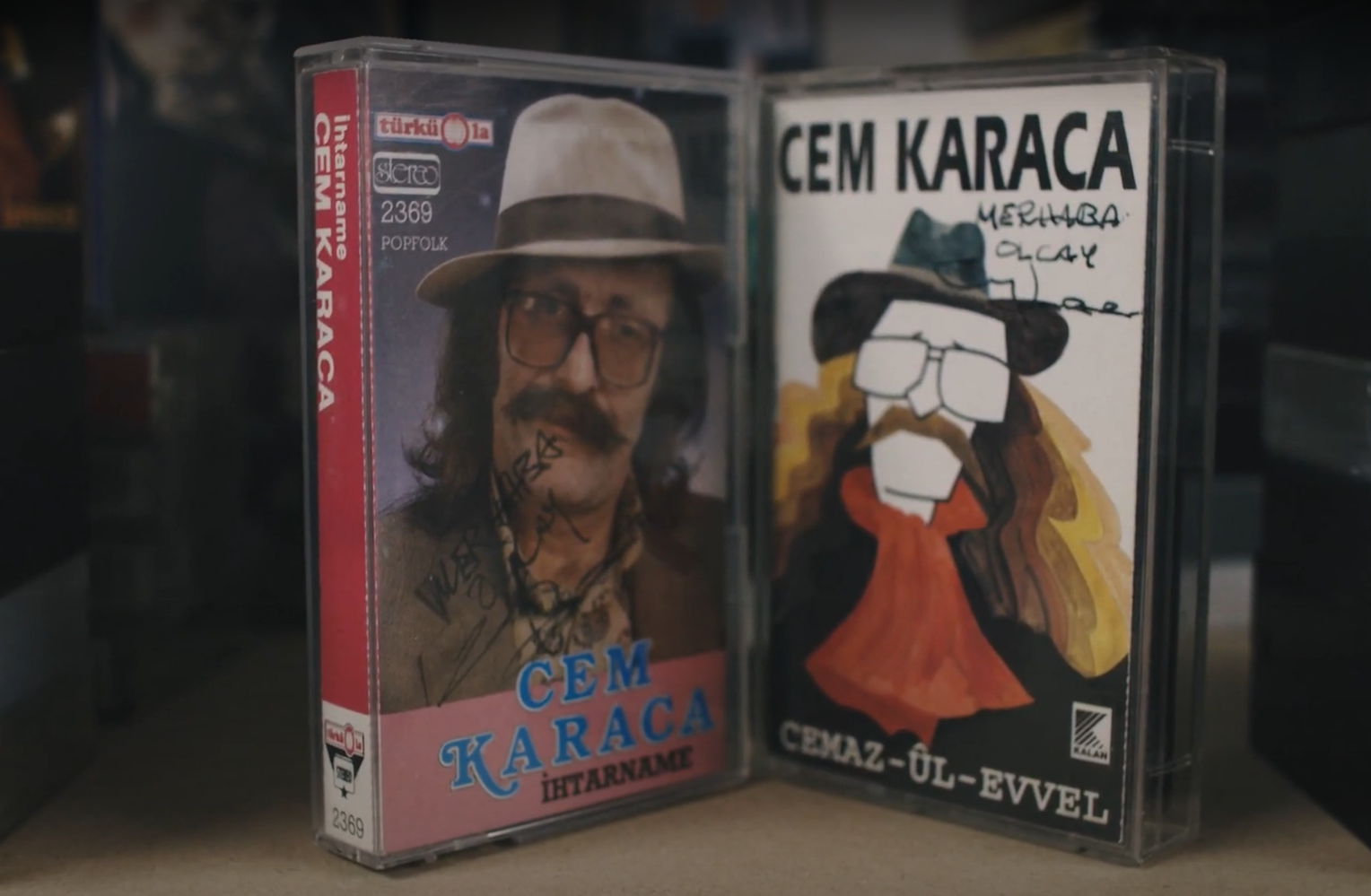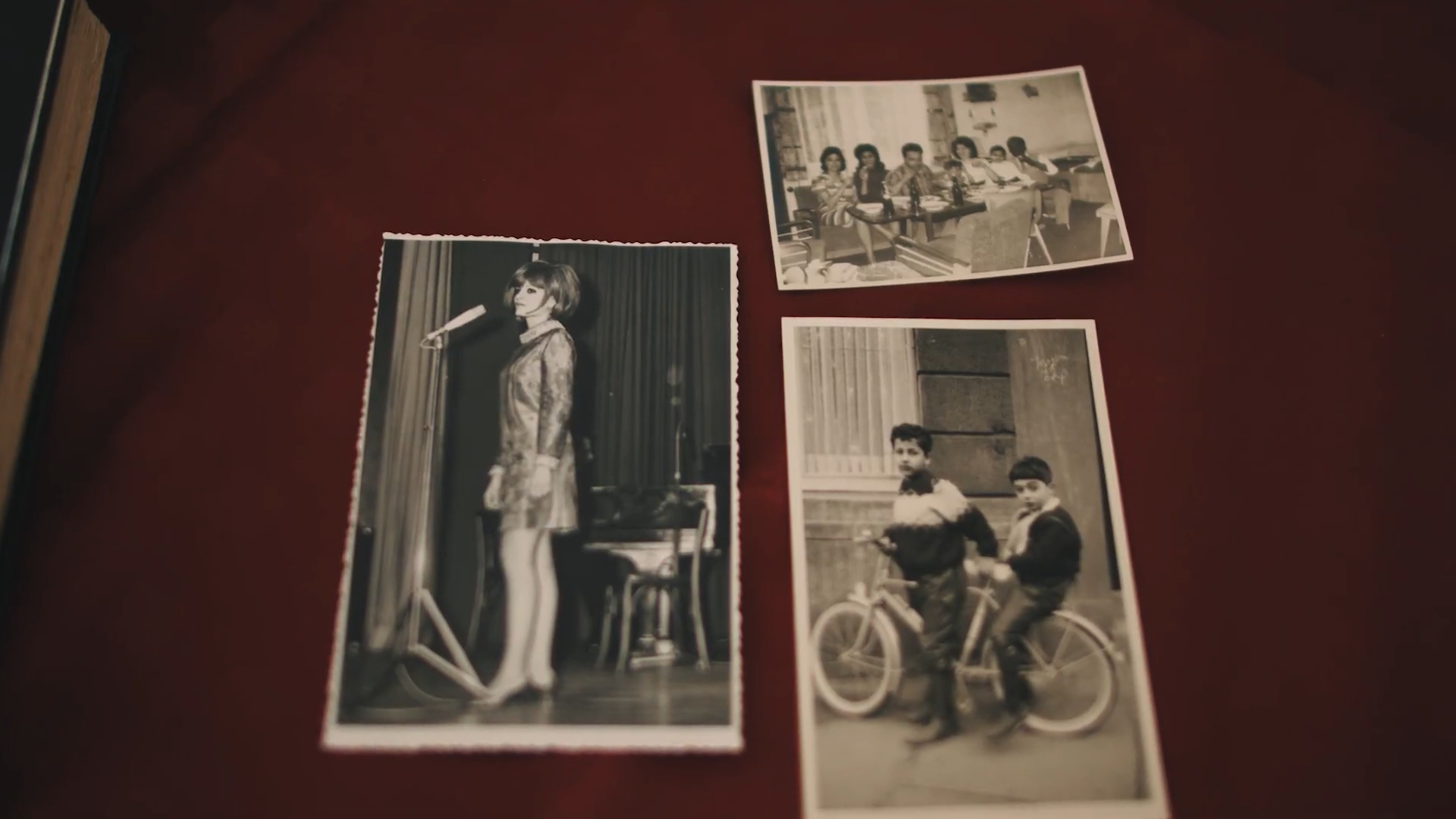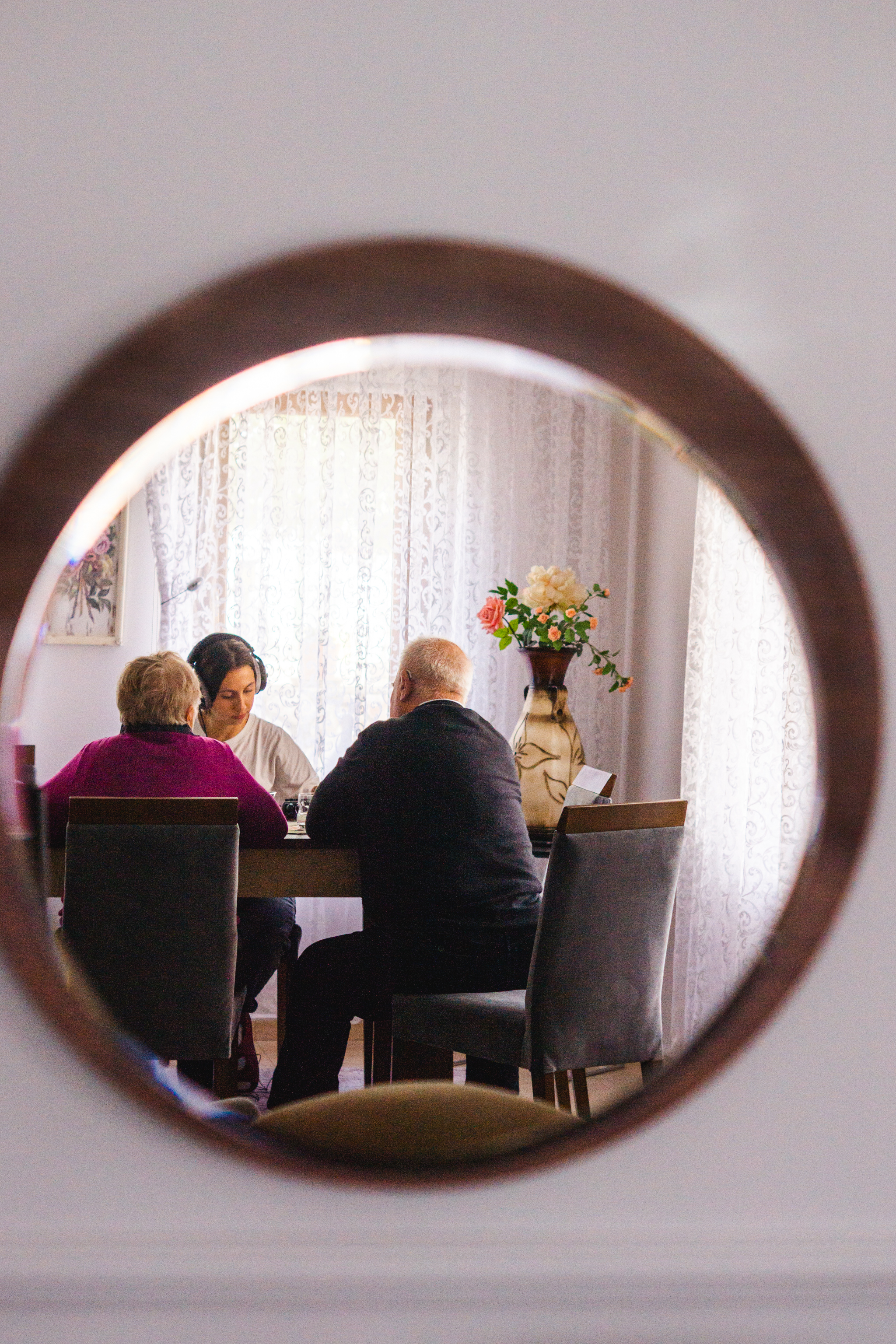en
- de
- en
What is Electronic Hafla?
حفلة (hafla) is the Arabic word for a party, a celebration, a show. In this story, the author Hêvi Saado presents two of her favourite artists.
The special thing about the following artists is that they both have different backgrounds and are inspired by different musical cultures, creating their own musical world.
ABOUT THE AUTHOR
Hêvi Saado is a graduate of the Sorbonne University in Paris, specialising in the history of art in the Islamic world. She is interested in Arabic manuscripts and their iconography and her recent research focuses on how Islamic art is exhibited in Germany in view of the reopening of the Museum for Islamic Art in 2027. She wrote this story during an internship at the museum, emphasising her passion for music.
Omar Souleyman
Omar Souleyman is a well-known singer from north-east Syria, born in 1966 in Tel Amir, a village near Hassaka (Hesîçe) and Ras al-Aïn (Serê Kaniyê). He began his career in 1994 as a singer at weddings, accompanied by a music group. His music is popular folk music, also known as chaâbi Syrian music. It is a mixture of sung poetry and rhythmic sounds played to the performance of the traditional dabke dance. This type of music originated in rural areas and was not appreciated by the urban population, who considered it ‘snobbish’ and not quality music.
However, Omar's music eventually began to catch on internationally as he created a modern version of this folkloric music using synthesisers and drum machines. The ongoing war in Syria since 2012 prompted him to flee to Turkey, where he found his new home. He recently moved to Erbil in the Kurdistan Region of Iraq. His fifth studio album is a tribute to Erbil and shows how the Syrian wedding singer became a global icon of electronic music with a techno-meets-dabke sound.
Acid Arab
When we talk about Electronic Hafla, we must also mention the French DJs Acid Arab. Their name is a reference to the electronic subgenre ‘Acid House’, mixed with sounds of instruments from the Arab world. Since 2012, Acid Arab has been creating contemporary music by updating traditional Arabic music without losing touch with the codes of Western electro. The band often collaborates with artists from the Middle East, such as Rachid Taha, Sofiane Saidi or Omar Souleyman, but the most surprising collaborations are probably those with the trio of Nigerian Tuareg singers Les Filles de Illighadad or the Turkish singer Cem Yıldız.
More stories in our series music from the world
Habibi Funk
Curious of what Tunisian disco or Sudanese jazz sounds like? We listened, we enjoyed, and now we are sharing the music of the Berlin based label Habibi Funk.
BETWEEN RACISM AND FEAR OF RELEGATION - THE NEW TURKS ARE COMING!
The dilemma of being caught between two supposedly opposing cultural identities becomes more and more the subject of Gurbet Şarkıları (Songs from a foreign land) in the 80s.
FROM THE "FOREIGN" INTO THE MAINSTREAM
The preoccupation with one's own identity is becoming increasingly important in many migrant biographies and is reflected in many songs. At the same time, it can be observed that the musicians increasingly choose the German language to express their thoughts and feelings.
FROM FEATHER BEDS TO STRAW - THE LONGING BEGINS
The first guest workers from Turkey come to Germany and a longing journey begins.
Podcasts as a place of remembrance
Funded by KULTUR.GEMEINSCHAFTEN, "Erinnerungenschaften - der Podcast für türkisch-deutsches Erinnern" preserves post-migrant voices and allows people to speak who have experienced and shaped our common history.







